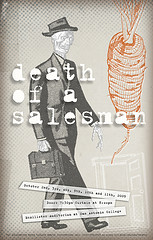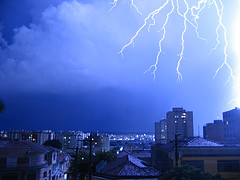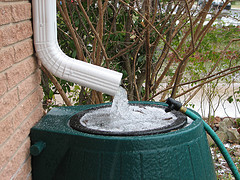 In the need for profit, in order to sustain ourselves, we sometimes get carried away into greed. Greed, as I mentioned earlier, is not a sustainable philosophy – even if some might suggest it is a fun way to live your life. Eventually, someone has to pay for your greed, and if it isn’t your own children, it’s someone else’s innocent children. However, when you go into business, your goal in capitalism is not to break even, you have to make a profit. So, when you make choices about your daily life, you’re always looking at the pros and cons of a particular decision and that’s often when the sales people walk in trying to sell you benefits that really aren’t all they’re cracked up to be or that aren’t in line with your own personal values (when you really look at it from an objective point of view). And, their goal is to get you to argue with them about the benefits so they can eventually convince you that you’d be an idiot not to close the deal. So, it’s quite funny when a couple of people figured out how to turn the tables on this sales logic.
In the need for profit, in order to sustain ourselves, we sometimes get carried away into greed. Greed, as I mentioned earlier, is not a sustainable philosophy – even if some might suggest it is a fun way to live your life. Eventually, someone has to pay for your greed, and if it isn’t your own children, it’s someone else’s innocent children. However, when you go into business, your goal in capitalism is not to break even, you have to make a profit. So, when you make choices about your daily life, you’re always looking at the pros and cons of a particular decision and that’s often when the sales people walk in trying to sell you benefits that really aren’t all they’re cracked up to be or that aren’t in line with your own personal values (when you really look at it from an objective point of view). And, their goal is to get you to argue with them about the benefits so they can eventually convince you that you’d be an idiot not to close the deal. So, it’s quite funny when a couple of people figured out how to turn the tables on this sales logic.
Reaping All Those Juicy Profits!
Take, for instance, the owner of the auto shop that I visited. He told me that he no longer does state inspections because the equipment to do them was constantly innovated and the last one would have cost him something like $19,000 to install. All he charged for inspections was about $20 and approx. $2.00 went back to the state for the sticker. So, he really only made about $18 off each inspection. He could not see justifying the expense of a new inspection machine with that sort of return on investment, with newer innovations coming out too often that made the investment useless.
That’s when the sales guy appealed to his greed. “Oh, yes, it’s true that now you don’t make that much off of inspections, but having this machine will mean you can attract new business! You only need to attract so much percentage more to cover the cost of the machine and then the rest of the money is pure profit.” Well, that auto shop owner decided he hadn’t be born in the back of a turnip truck and when the sales guy came along again, he told him he’d thought about it and decided that he would take one of those machines – on one condition: He’d let the sales guy take up this grand opportunity that he was willing to give him by allowing him to buy the machine for him. Then, the shop owner would do the inspections as a service to his customers for free and would turn around and give the sales guy all those juicy profits, plus the extra $2 on top that he was going to have to pay the state for the stickers. The sales guy left and never came back. Apparently, he wasn’t smart enough to close on the same deal he’d offered the owner of the shop.
Turning Brown Without Envy?
Then, there’s the story of the guy who was sold a lawn package for his lawn that for years had defied being green. The first year, the lawn company did what they said they would do: they made the lawn green. But, all of a sudden, the lawn developed a brown spot, and it kept getting bigger. They apparently didn’t know how a brown spot could develop on a lawn they were maintaining, but they sure knew how to fix it – for the right price. It was at that point that the homeowner started to wonder why he should pay a lawn company to fix a lawn that was browning, when they already had a contract. So, he did not buy the newer services. A year passed and the brown spot grew and grew and the lawn companies kept calling – until he finally let them in on his secret: He’d decided to let the brown spot grow and take the entire lawn so it would be all one color and he wouldn’t have to deal with the lawn companies anymore. A little extreme, but no one ever said a lawn has to be green. He never got another call after they realized that brown was his new favorite color.
So, when a sales person tries to sell you the benefits, ask yourself if the following questions:
1. If they were in your position, would they take themselves up on the same offer?
- Most would not, and that’s why they make money selling, not buying. If you don’t believe in your own product enough to buy it yourself, well, that says an awful lot about the product.
2. Is the benefit they are selling something you want for yourself or is it something that is being pressured upon you by a keeping up with the Jones’ mentality?
- It’s okay to buy something just to show off, if you understand that’s what is making you feel good. At the point where the costs outweigh the benefits though, it might be just easier to decide to start a new trend and opt out.
*Image courtesy of Flickr Creative Commons license by Howdy, I’m H. Michael Karshis







